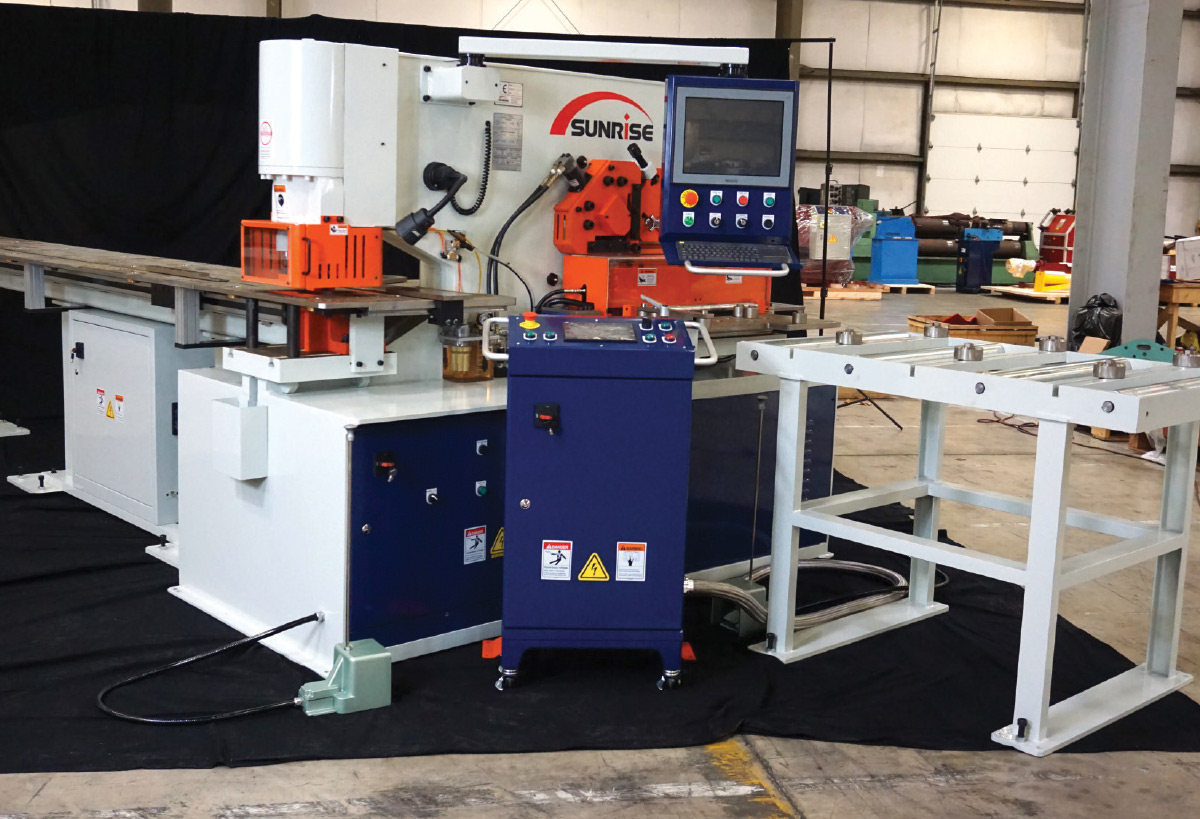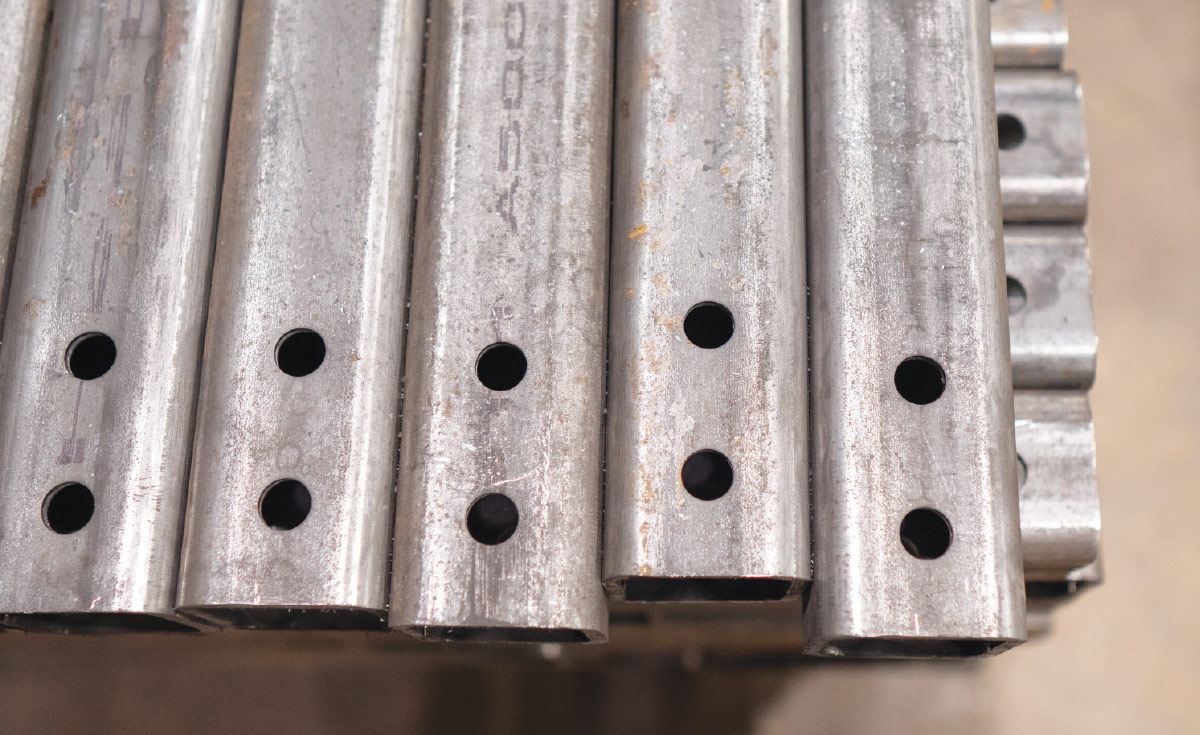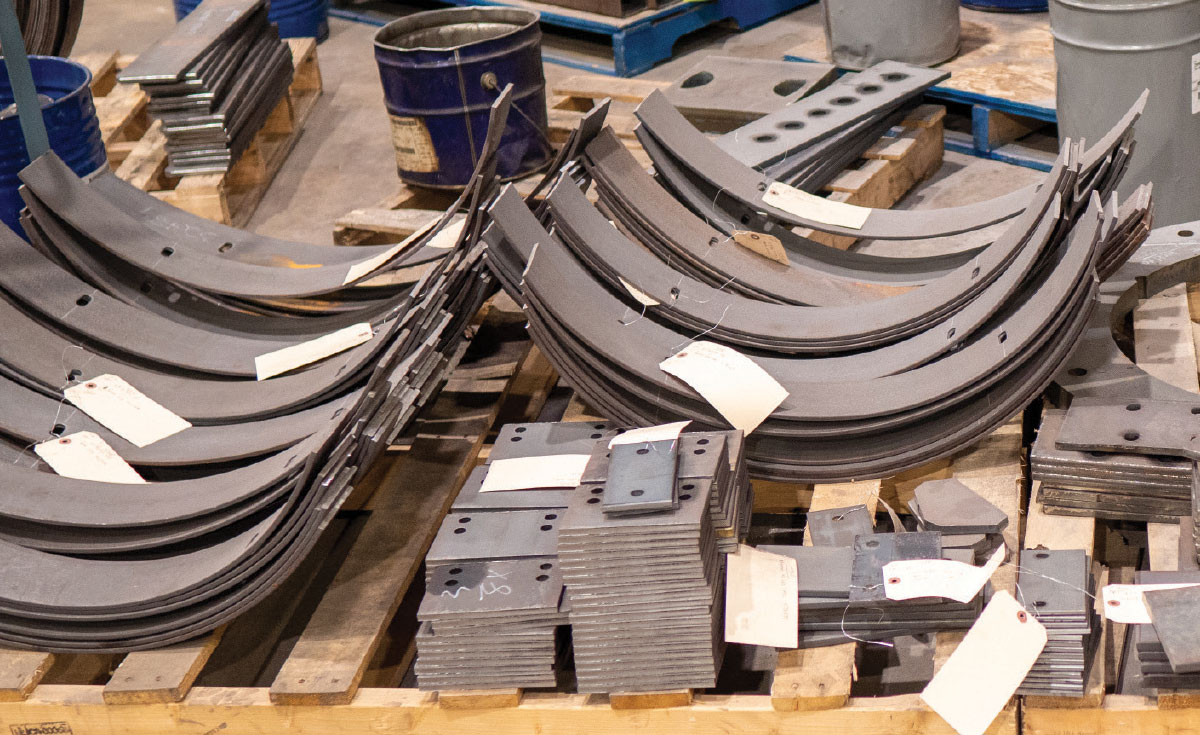
llfasteners Inc. began in Australia as a supplier of construction fasteners and concrete anchors. The company retained those product offerings while expanding its business about eight years ago to include structural steel fabrication and production of cellular tower parts and a tower safety climb system.
In addition, the company grew its footprint over the years and now has four locations in Australia and four in the U.S., with a manufacturing facility in Medina, Ohio, and three other U.S. locations for sales and warehousing.
As a way to get started in structural steel fabrication, Allfasteners purchased a manual ironworker, says Tony Carmichael, operations manager for Allfasteners in Medina. But the company eventually realized the limitations of the manual machine. “We found that we did not have enough capacity with that machine.”
The company examined a variety of ironworkers and selected the Sunrise IW-110SD ironworker with a semi-automatic CNC positioning table from Trilogy Machinery Inc. in Belcamp, Maryland, after the owner of Allfasteners saw it at a trade show about four years ago, Carmichael says.
Trilogy reports that the CNC positioning table is for plate and angle positioning and is available as a factory-installed option on any dual-cylinder ironworker or punching machine with a 20-in. or larger throat depth. To run the machine, the operator positions the workpiece material against the CNC X and Y stops and initiates the punch program.


In addition, Allfasteners added the Sunrise automatic CNC plate shear system to its ironworker. According to Trilogy, the CNC plate shear system eliminates manual shearing time and plate positioning. The operator has full control to input material length, cut length and the number of pieces needed. The system automatically processes the plate to length and features knurled drive rollers, hydraulic hold-down and proximity sensors to enhance part quality.
Allfasteners also ordered the ironworker with an extended table to punch long parts, Carmichael says. “We’re punching bars up to 10 feet sometimes, down the length of the bar.”
Without the extended table, which is attached to the punching station, Carmichael notes that the Sunrise ironworker has a smaller footprint than the previous manual machine.
He adds that Allfasteners primarily punches and shears bars with the ironworker. The typical workpiece materials are steel grades A36, A250 and A570, and common workpiece square sizes are ⅜ in. thick by 4 in. and ½ in. thick by 6 in.
“We start with 20-ft.-long steel bars and shear them down to shorter pieces, 4 to 12 in. long, and we’re punching holes in them as well,” he says. “A lot of connection plates have an elbow slot, and that would be the primary application.”
The company processes mill-direct metal, so there is no prior operation before the ironworker, but welding is possible afterward, depending on the part being fabricated, Carmichael says.
Allfasteners operates its Sunrise ironworker throughout the shop’s single shift.
 Everyone we’ve had operate it, even those who do not have a fabrication background, found it easy to pick up.
Everyone we’ve had operate it, even those who do not have a fabrication background, found it easy to pick up. 
Trilogy notes that Sunrise PC controller software was designed to eliminate time-consuming layout and the scrap that results from manual layout errors.
“The margin for error there is much lower,” Carmichael adds. “Before, it was definitely possible that someone could just punch a hole in the wrong location or, perhaps, lay out the hole locations incorrectly.”
Standard maintenance involves changing the oil when needed and keeping the equipment clean, Carmichael says. Allfasteners operates the ironworker throughout its shop’s single shift and, so far, it has not needed repairs. “We haven’t had any issues to speak of.”
Based on its positive experience with the Sunrise ironworker, Carmichael says Allfasteners purchased a Sunrise horizontal bending machine, which it received in early February. “We are very interested in what else they may come out with.”
The company’s experience with the Sunrise ironworker also convinced the fabricator that it will only purchase a CNC ironworker when a new one is needed, he notes. The higher throughput the CNC machine enables versus a manual ironworker helps Allfasteners better serve its growing customer base. “We’ve seen a substantial uptick in sales year to date. If it continues that way, we’ll have an extremely busy year.”